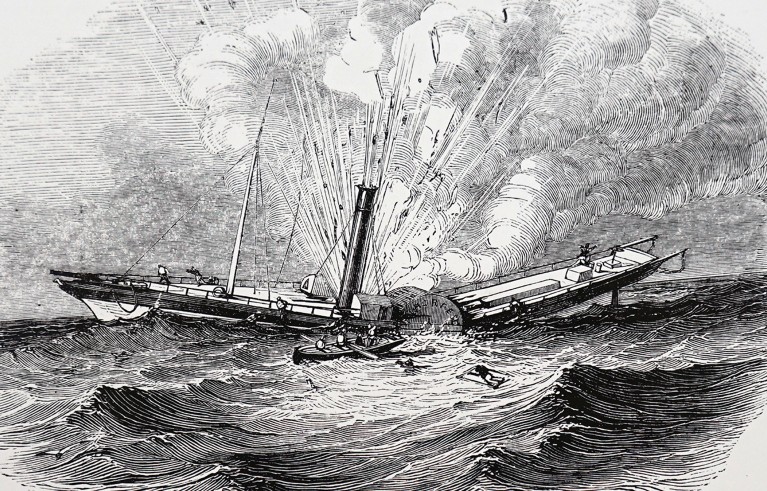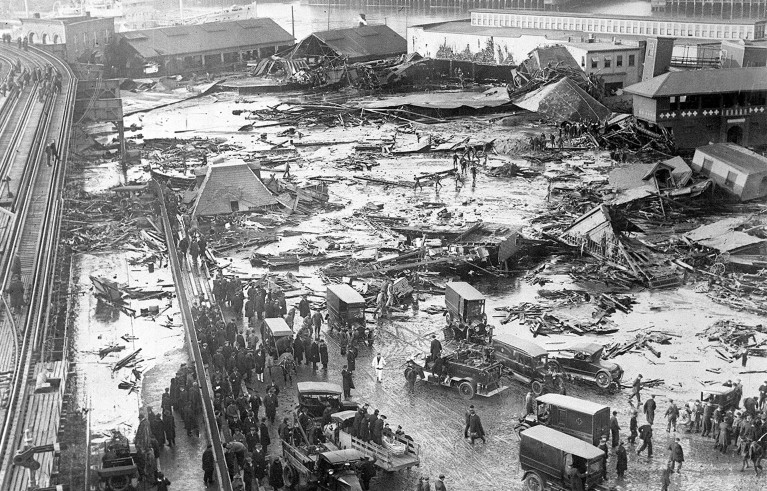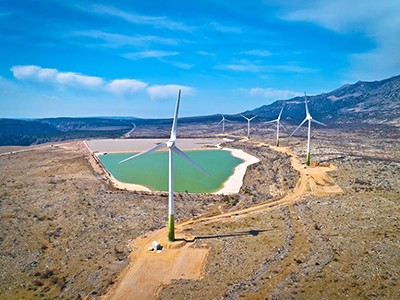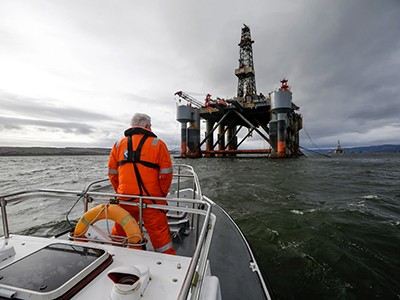
Within the nineteenth century, steamboat explosions have been widespread — till they weren’t.Credit score: Common Historical past Archive/UIG/Getty
Depraved Issues: How one can Engineer a Higher World Guru Madhavan W. W. Norton & Firm (2024)
Society depends on engineers to ship virtually the whole lot it makes use of, from meals and water to buildings, transport and telecommunications. However new applied sciences are sometimes rushed into service, for market causes, earlier than potential dangers and shopper behaviours are understood, and nicely earlier than ample regulation is put in place to guard the general public.
Calling all engineers: Nature needs to publish your analysis
In Depraved Issues, biomedical engineer and US coverage adviser Guru Madhavan considers the implications of those human-made vulnerabilities utilizing putting tales — similar to a tsunami of molasses, aeroplane crashes, exploding steamships and infants decapitated by airbags. By exploring the interaction between engineers and policymakers, Madhavan exhibits how engineering can produce issues that coverage can’t repair, and the way profitable methods can create socially unacceptable dangers.
Madhavan focuses on ‘depraved issues’, which emerge “when onerous, tender and messy issues collide”. Time and time once more, a know-how turns into worthwhile and is broadly adopted, then its issues grow to be clear and public alarm grows. A interval of debate follows, marked by infected feelings, information protection, litigation, denial of accountability and political impotence. Finally, corrective mechanisms are developed, applied and enforced with up to date requirements. These patterns and issues of fast technological growth have gotten acknowledged. And there are many fashionable examples, from social-media platforms and artificial-intelligence methods to self-driving automobiles.
Deep dive into disasters
There’s a lot that may be learnt from historical past, Madhavan tells us. Take the profitable enterprise of supplying molasses for whisky and meals manufacturing, for instance. A large storage tank inbuilt 1915 in Boston, Massachusetts, had exhibited so many indicators of being unsafe that the corporate managers and staff grew accustomed to the leaks and stress groans. Sooner or later in 1919, the tank, crammed to capability, ruptured, sending 10.5 million litres of syrup by the streets in a 10-metre-high surge, destroying buildings, killing 21 folks and injuring 150.
Within the wake of the molasses catastrophe, the trade rushed to enhance the security of each ‘onerous’, bodily infrastructure and ‘tender’ operational requirements. Dangers and vulnerabilities have been assessed, higher supplies have been engineered, designs have been improved on and security and upkeep measures have been applied to scale back the chance of pressure-vessel explosions and collapses.

Warning indicators have been ignored within the lead-up to the 1919 Boston Molasses Catastrophe.Credit score: Science Historical past Photos/Alamy
However why was it regular to simply accept vulnerability — why did staff and managers ignore the warning indicators? A social-responsibility code was wanted to sort out the tender issues of human error and threat normalization, in addition to the obscure issues of greed, mismanagement and hubris. Had such a code existed, it might even have spoken to the ‘messy’ downside of colonial exploitation in sugar-cane-exporting nations. Madhavan brings consideration to the necessity for engineers to tackle social accountability.
The world should rethink plans for ageing oil and gasoline platforms
Madhavan explores six aspects of depraved issues — effectivity, vagueness (concerning the nature of the issue), vulnerability, security, upkeep and resilience. Dangers are not possible to remove, however they are often diminished by ‘aware’ processes (wherein staff have time to run by checklists and establish hazards), office cultures of humility and steady studying, and sturdy, responsive work constructions, similar to whiteboards on which points could be recorded, with processes to cease work to examine and report errors.
Programs-safety engineer Nancy Leveson on the Massachusetts Institute of Know-how in Cambridge, for instance, strives to account for social and cultural behaviours in her work. She has studied steam-boiler explosions, that are uncommon immediately however have been commonplace a century in the past. In fact, high-pressure-steam science and pressure-vessels engineering have improved since then — however Leveson factors out that the true transition has been in tradition. These explosions went from being a tragedy to being unacceptable.
The Wright stuff
Aviation supplies a fertile floor for the research of such disasters, and Madhavan makes ample use of examples from this sector. In 1903, aeroplane inventor Orville Wright took on the dangers of flying alone; inside a decade, he was flying with paying prospects. The e book goes deep into the 121-year historical past of plane, flight simulators, airmail, navigation applied sciences, air-traffic administration and authorities interventions. It recounts the early challenges of flying and navigating, and the risk-taking tradition that was significantly widespread amongst pilots within the first three a long time of aviation — leading to numerous accidents. Flying was so unsafe within the Nineteen Sixties that in the USA, just one in 5 folks was prepared to fly.
Madhavan threads the story of US aviation pioneer Edwin Hyperlink all through the e book to discover how a methods method is required to handle depraved issues. In addition to being a pilot, Hyperlink was an inventor, entrepreneur and adventurer with a powerful sense of accountability. I used to be awarded a Hyperlink Basis Power Fellowship throughout my PhD research. The scholarship utility requested candidates to debate how their imaginative and prescient for analysis was guided by social accountability — now I do know why.

Follow in Edwin Hyperlink’s Blue field offered pilots with bodily and psychological coaching.Credit score: Jon G. Fuller/VWPics/Alamy
Hyperlink devised a flight simulator, often called the Blue Field, wherein trainees achieve expertise with the flight deck and the controls and get a really feel for various manoeuvres. Importantly, past technical expertise, he organized the coaching expertise across the psychological self-discipline of the pilot. He understood that ‘blind flight’ — when pilots lose visibility of the horizon and landmarks — typically led to a catastrophic lack of management as a result of pilots relied an excessive amount of on their senses as an alternative of on the aircraft’s devices. Confining pilots within the Blue Field with out visible cues taught them the way to belief the altitude, heading and horizontal scenario indicators.
Equally, Madhavan champions the significance of taking a look at seemingly technical issues by a wider lens — such because the enterprise, coverage and social elements. He makes the case for investing in engineering-research programmes to develop the holistic approaches and strategies wanted to handle depraved issues. He additionally requires the sector of engineering to develop past its typical position of fostering financial development by technical innovation and tackle the political and social elements of business growth. Examples embody the Endicott-Johnson Footwear Firm, then primarily based in Binghamton, New York, which, within the 1910s, began constructing inexpensive homes for its staff and decreased their workday from ten to eight hours.
Depraved Issues is a wake-up name for all engineers to develop their mindset. Though I want that Madhavan’s e book had gone a step additional, to put out how us engineers may do this, it does present a background and argument to pivot our present dangerous, if profitable, endeavours in direction of safer methods.




